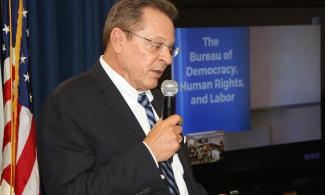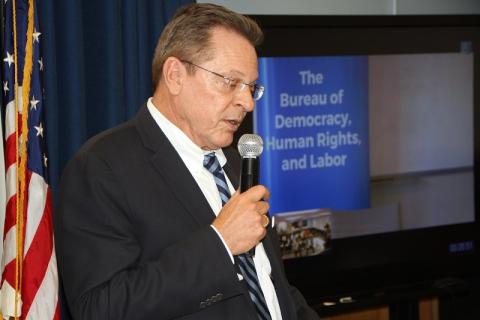
He pointed out the factors contributing to economic and political instability as health crises, illegal trade in toxic chemicals, dumping of hazardous wastes, corruption, among others.

John Bray, the United States Consulate General, has called on the Nigerian government to address the country's "endemic corruption", represented in signing deals that only benefit political leaders.
The US envoy made this known while speaking on the theme: ‘A Multi-Stakeholder Approach to Addressing Nigeria’s Security Challenges,’ at the Securex West Africa conference in Lagos on Tuesday.
According to Bray, Nigeria’s present economic challenges and future outlook are daunting in view of its explosive population projected to be 450 million by 2050.
He pointed out the factors contributing to economic and political instability as health crises, illegal trade in toxic chemicals, dumping of hazardous wastes, corruption, among others.
Referencing the National Bureau of Statistics (NBS), Bray said the number of unemployed youth in the country put at 13.2 million as of 2018 was alarming, and that the rise of militancy in the North-East, South-East, and South-South related directly to the number of idle youth in the country.
He said: “The challenges it will face in the future brought on by dramatic population increase could be even direr. Nigeria is on track to reach nearly 450 million by 2050, a number that would make it the third most populous nation in the world. The convergence of these factors and a poor economic outlook will have a significant impact on security and stability in Nigeria.
“Nigeria must address its endemic corruption. The ability to 'sign deals' that only benefit political leaders impact Nigeria’s ability to develop its economy and encourage investment. The United States does its best to limit corruption continent-wide. We do so through visa regulations, business sanctions, and through training and advocacy work.”